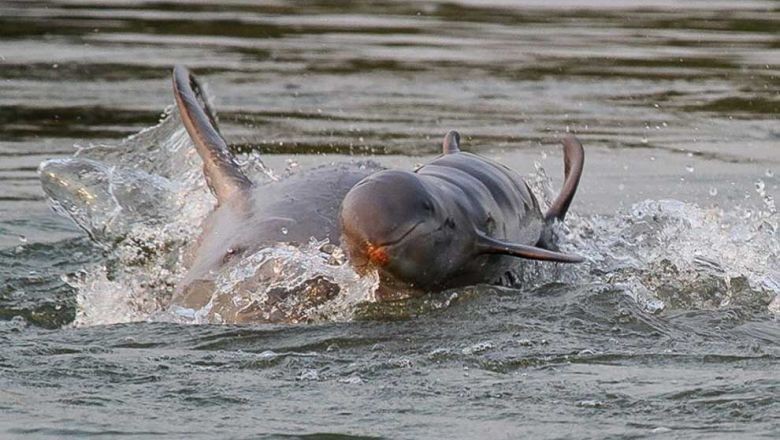
Hun Sen plans to grant benefit cards to dolphin zone villagers
Irrawaddy dolphin conservationists have expressed strong support for Prime Minister Hun Sen’s recommendation that the authorities provide ID Poor cards for people living in the Irrawaddy dolphin protected area.
Hun Sen was addressing an annual meeting of the Ministry of Agriculture, Forestry and Fisheries, held on March 24 to review its 2022 work results and set plans for 2023.
“We should provide them with ID Poor cards as an incentive for them to cease fishing. If we do not do so, they will continue to use fishing nets, as it is their only source of income. The government can afford to support them, and it is necessary to protect the dolphin population,” he said, while addressing the March 24 annual meeting of the Ministry of Agriculture, Forestry and Fisheries.
“Administrative measures alone are not enough. I want you all to determine how many families are still fishing in the protected areas, and come up with a plan to create new jobs for them,” he added.
Ouk Vibol, director of Fisheries Conservation Department of the Fisheries Administration, said on March 26 that the government has prioritised removing addition environmental pressure from the habitat of the Irrawaddy dolphin.
“This is vital work. There are almost 100 canyons in the Mekong River that are potential breeding grounds for the dolphins, and over 1,300 fishing families in the same areas. More than 90 per cent of dolphin deaths have been attributed to fishing nets,” he added.
He said that the issuance of IDPoor cards – and the finding of new livelihoods for local families – would help to ensure that the alarming death rate of the species would decline.
“I support the prime minister’s recommendations of providing IDPoor cards and offering alternative employment. These seem like the most sure-fire ways to end the illegal fishing practices which threaten the Irrawaddy dolphin population,” he concluded.
World Wide Fund for Nature (WWF) Cambodia country director Seng Teak agreed that providing cards and offering new livelihoods to local families was essential, if the rare mammals were to be saved.
“I do think it is important to make certain that the families are genuinely impoverished, however,” he said.
Teak added that he would like to see the authorities monitoring the families to make sure that they did not return to illegal finishing.




